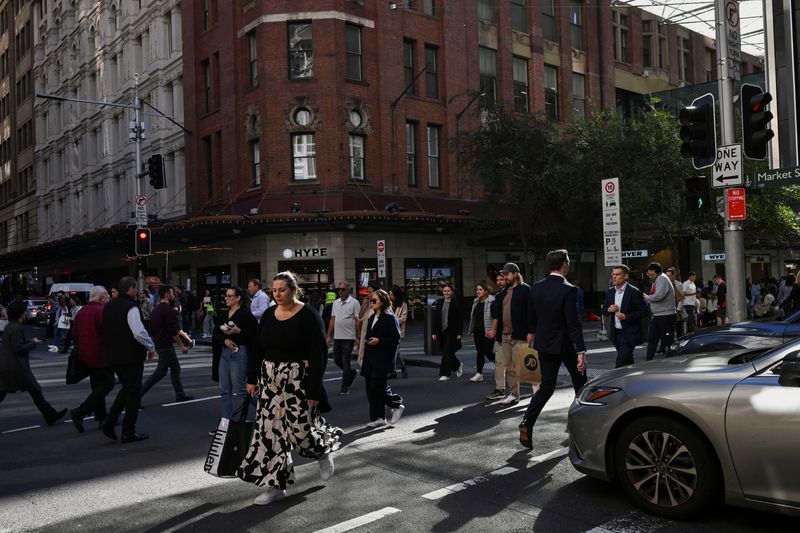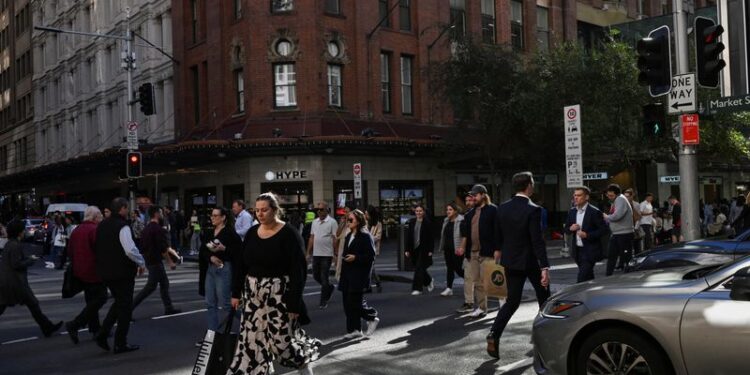SYDNEY (Reuters) – Australian employment missed forecasts in October after a run of outsized gains, though the jobless rate held steady and underlying trends in the labour market remained resilient.
There was muted market reaction to the report. The Australian dollar held at $0.6494, while three-year bond futures rose 1 tick to 95.79. Markets maintained bets that a first easing in Australia would come most likely in May or July next year.
Figures from the Australian Bureau of Statistics on Thursday showed net employment rose 15,900 in October from September, when they jumped by a revised 61,300.
That was the smallest increase in seven months and came in under market forecasts for a 25,000 rise, but annual jobs growth still ran at a strong 2.7%.
The jobless rate held at 4.1%, where it has been since June, while the participation rate edged down to 67.1% from an all-time high of 67.2%.
The RBA has held its policy steady for a year now, judging the current cash rate of 4.35% – up from 0.1% during the pandemic – is restrictive enough to bring inflation to its target band of 2-3% while preserving employment gains.
With the labour market surprisingly strong, the prospects of a near-term rate cut are slim. The central bank has said monetary policy will stay restrictive until it is confident inflation is moving sustainably to target.
Headline inflation slowed to 2.8% in the third quarter but that was only due to government electricity rebates. Underlying inflation remained high at 3.5%.

Markets imply just a 10% chance the RBA might cut at the last meeting of the year on Dec. 10, and only a 28% probability of a move at its following meeting in February.
The job report showed hours worked rose a modest 0.1% in October while the underemployment rate eased 0.1 percentage point to 6.2%.






